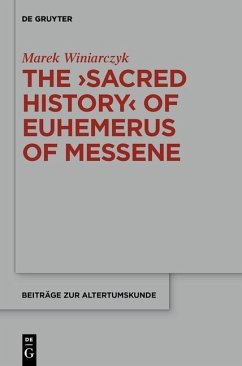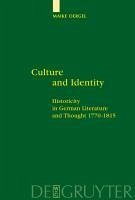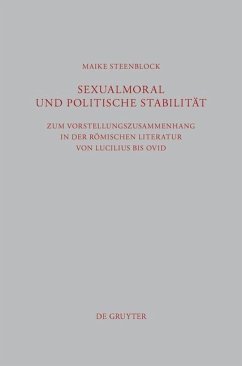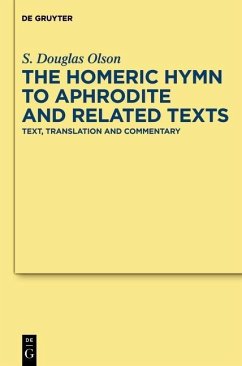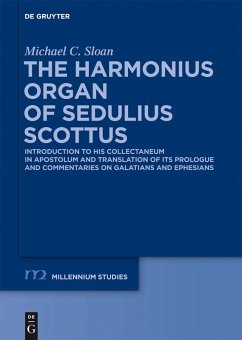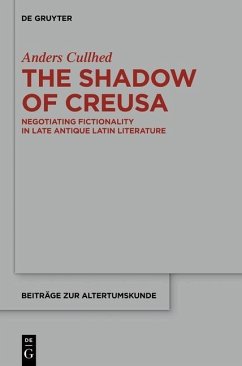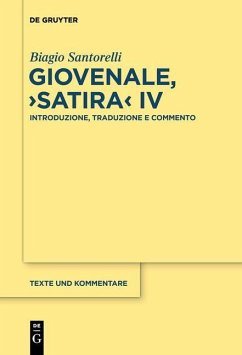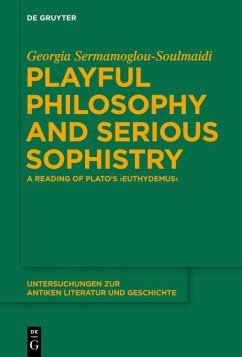
The Ideology of Classicism (eBook, PDF)
Language, History, and Identity in Dionysius of Halicarnassus
Versandkostenfrei!
Sofort per Download lieferbar
139,95 €
inkl. MwSt.
Weitere Ausgaben:

PAYBACK Punkte
70 °P sammeln!
So far, the critical writings of Dionysius of Halicarnassus have mainly attracted interest from historians of ancient linguistics. The Ideology of Classicism proposes a novel approach to Dionysius' oeuvre as a whole by providing the first systematic study of Greek classicism from the perspective of cultural identity. Drawing on cultural anthropology and Social Identity Theory, Wiater explores the world-view bound up with classicist criticism. Only from within this ideological framework can we understand why Greek and Roman intellectuals in Augustan Rome strove to speak and write like Demosth...
So far, the critical writings of Dionysius of Halicarnassus have mainly attracted interest from historians of ancient linguistics. The Ideology of Classicism proposes a novel approach to Dionysius' oeuvre as a whole by providing the first systematic study of Greek classicism from the perspective of cultural identity. Drawing on cultural anthropology and Social Identity Theory, Wiater explores the world-view bound up with classicist criticism. Only from within this ideological framework can we understand why Greek and Roman intellectuals in Augustan Rome strove to speak and write like Demosthenes, Lysias, and Isocrates.
Topics addressed by this study include Dionysius' view of the classical past; mimesis and the aesthetics of reading; language and identity; Dionysius' view of the Romans, their power and the role of Greek culture within it; Greek classicism and the contemporary controversy about Roman identity among Roman intellectuals; the self-image as Greek intellectuals in the Roman empire of Dionysius and his addressees; the dialogic design of Dionysius' essays and how it implements a sense of elitism and distinction; Dionysius' attitudes towards communities competing with him for leadership in rhetorical education and criticism, such as the Peripatetics and Stoics.
Dieser Download kann aus rechtlichen Gründen nur mit Rechnungsadresse in A, B, BG, CY, CZ, D, DK, EW, E, FIN, F, GR, HR, H, IRL, I, LT, L, LR, M, NL, PL, P, R, S, SLO, SK ausgeliefert werden.




